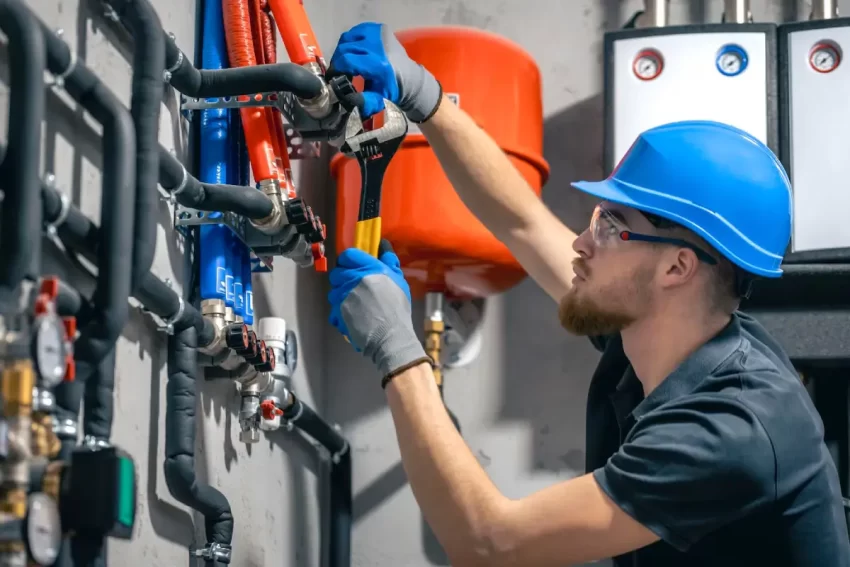Gas lines are pivotal in delivering essential energy for heating, cooking, and other household activities. While they are fundamental to modern living, their installation and maintenance require careful attention to safety standards, particularly depth requirements. This article explores the importance of adhering to proper gas line depth regulations, the potential risks of inadequate installation, and why hiring professionals is crucial to ensuring the safety and efficiency of your gas systems.
Why Gas Line Depth Matters
Understanding how deep does a gas line have to be buried is essential for preventing accidental interference and complying with safety standards. The depth at which gas lines are buried is crucial in protecting them from external damages caused by human activities, weather conditions, or natural ground movements. An adequately measured depth safeguards against disturbances that could compromise the line’s integrity, leading to leaks or disruptions in service.
Local regulations typically set specific depth requirements to minimize these risks, considering factors such as soil type, climate, and potential interference from other underground utilities. Understanding and following these guidelines is vital to ensuring the safety and reliability of your gas systems.
Local Regulations and Standards
Each region has regulatory bodies that dictate the safe installation of gas lines. These regulations can vary significantly depending on local environmental and climate conditions. For instance, areas prone to freezing temperatures may require deeper gas lines to prevent cracking from frost heave, while regions with sandy soil might have different requirements.
Compliance with these standards is non-negotiable, not only for legal reasons but to safeguard the community and property. Ensuring your gas lines are buried at the correct depth per local regulations protects against fines, legal consequences, and the potential for costly accidents or repairs.
Risks of Improper Installation
When gas lines are installed incorrectly, particularly at inadequate depths, the risk of damage increases significantly. Shallow gas lines can become vulnerable to accidental hits during landscaping, construction, or routine yard maintenance. Such incidents can lead to gas leaks, which pose severe hazards, including explosions and health risks from inhalation.
Additionally, gas lines installed without proper depth consideration can be affected by shifting soil, leading to disconnections or breaks. Over time, these issues compromise home safety and can result in extensive repair costs and service disruptions.
The Importance of Hiring Professionals
Installing gas lines is an intricate process that demands expertise, precision, and a deep understanding of regulatory requirements. Hiring certified professionals for this task ensures that your gas lines are installed correctly and safely. Professionals have the knowledge and tools to assess soil conditions, navigate local codes, and install lines at the appropriate depth without damaging existing utilities.
Beyond installation, professionals provide valuable insights into maintaining gas lines, conducting regular inspections, and addressing any issues promptly. Their expertise significantly reduces the likelihood of errors that could lead to dangerous situations or costly repairs.
Why DIY is Not Recommended
Although installing gas lines yourself might seem cost-effective, the risks far outweigh any immediate savings. DIY installations can lead to mistakes that endanger your home and neighboring properties. Without the proper tools and knowledge, it’s easy to make errors in determining depth, understanding soil conditions, or following local codes.
The consequences of DIY gas line installation can be severe, from legal issues due to regulatory non-compliance to catastrophic safety hazards. To ensure peace of mind and safety, it is strongly advised to leave gas line installations to qualified professionals who adhere to strict safety standards.
Long-term Benefits of Correct Installation
Investing in professional gas line installation ensures peace of mind, knowing that your infrastructure meets all safety standards and regulations. Properly installed gas lines require less maintenance, reducing long-term costs and the likelihood of emergency interventions. A professional installation supports efficient gas flow and reduces the chance of leaks, ensuring your energy needs are met reliably.
Furthermore, correct installation improves home value, as prospective buyers are often keenly aware of the importance of sound foundational systems. A well-maintained and correctly installed gas line system is a compelling selling point.
Conclusion
Adhering to gas line depth requirements is non-negotiable for ensuring the safety and efficiency of your home’s energy system. By understanding local regulations and avoiding the pitfalls of DIY installations, homeowners can protect themselves from risks associated with improper gas line depths.
Engaging professionals safeguard your home and provide peace of mind and long-term cost-efficiency. Making informed decisions about gas line installation and maintenance can significantly impact home safety and functionality.

